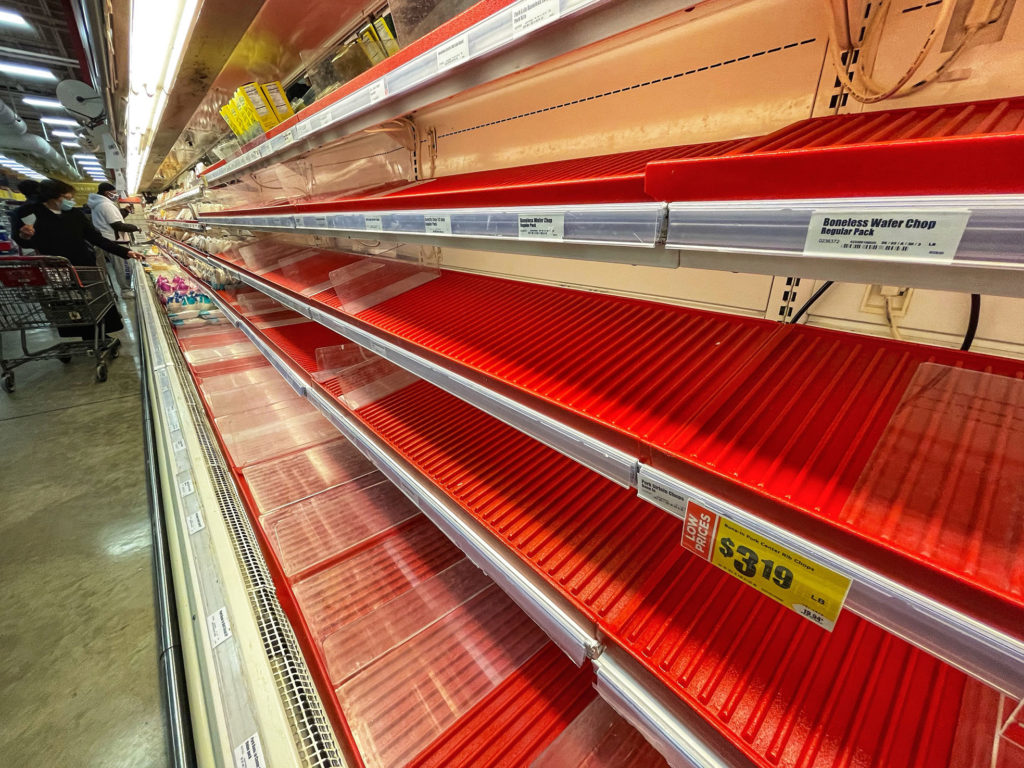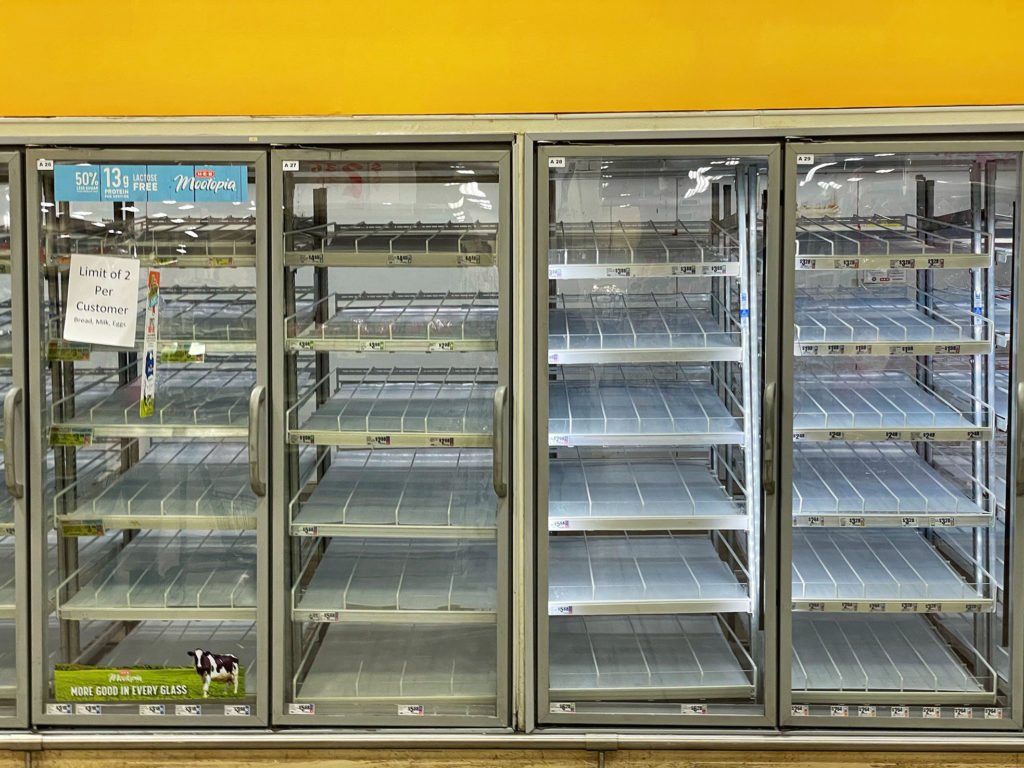Winter storm leaves empty Texas grocery shelves – again!
Texas A&M AgriLife economist: It’s different this time, stores begin restocking
The shelves of Texas grocery stores are seriously picked over, if not empty, for the second time in less than a year, said a Texas A&M AgriLife expert. But winter storm-related supply chain shortages are different than those consumers experienced during the early days of the COVID-19 pandemic.

It’s a matter of supply and demand, said David Anderson, Ph.D., Texas A&M AgriLife Extension Service economist, Bryan-College Station.
“This is not another COVID situation from last March,” Anderson said. “This is a really harsh winter storm. Of course, the effects have been exacerbated by the electric grid and water problems.”
He explained that snow and ice storms, as well as other weather events, can and do cause food production problems, some short- and some long-term.
Many AgriLife Extension agents and specialists as well as other government officials are assessing damages this week and turning those reports in for a state assessment of expected losses and economic impacts. Some impacts can be seen immediately, while others, especially on crops subjected to freezing temperatures for extended periods, need some time to materialize once the snow and ice have melted away.
“If a cattle packing plant is shut down, then beef production will be lower one week but back up the next,” he said. “Also, these weather events may destroy crops like vegetables or fruit. If they do, then we’ll have tighter supplies and higher prices until the next production can occur either from another region of the world or part of the U.S. If the storm killed a lot of chickens, then we might have lower production for a few months and higher prices.”
So, while this is a transportation and supply chain issue again, it is one that will be mostly short in nature. What occurred last week and through the weekend in the stores is the result of pretty understandable occurrences, Anderson said.
“We aren’t used to seeing the shelves empty because almost all the time the trucks run normally and restocking gets done,” he said. “So, it’s a surprise when it happens.”
But, he said, with a little time to resupply shelves, things will be back to normal.
Overall food production not the problem

“It is not a food production problem. We produce plenty of food. But it’s not stored at the grocery store,” Anderson said.
“In extreme events like this people go to the store and buy a lot of stuff to get through the event,” he said. “Then, during the event, the trucks to resupply the shelves can’t get through, so there is nothing there. And all the folks working to refill the shelves were also affected by the storm — their homes faced the same problem, they have trouble getting to work, and the trucks can’t move until the storm passes.”
Anderson said, however, this situation was a consumer issue as well – one learned during the COVID-19 pandemic early stages. In addition to overcoming the urge to overbuy on some items, consumers had to learn to be flexible in their choices until things returned to normal.
“I can’t help but think there is some demand side to this too,” he said. “All of us consumers rush out to buy stuff, overwhelming the system. That’s fine. You need to get stocked up for not being able to go out. But I think also we could probably all use some flexibility. We expect the shelves to be full no matter what. We expect to be able to get whatever we want, whenever we want it, regardless of season. I think some flexibility, planning and patience would help us all.”
Anderson said he knows that is often easier said than done for those who are in need. This terrible winter storm hit when there are still those in need due to the economic effects of COVID-19 – those who are out of work and this hardship has made it even worse.
“So, I am not saying that we, as consumers, need to stop buying,” he said. “We need to get what we need to get, but some understanding of how our food system gets from the farm to your house helps a lot. I think it’s another reminder of how this all works.”


